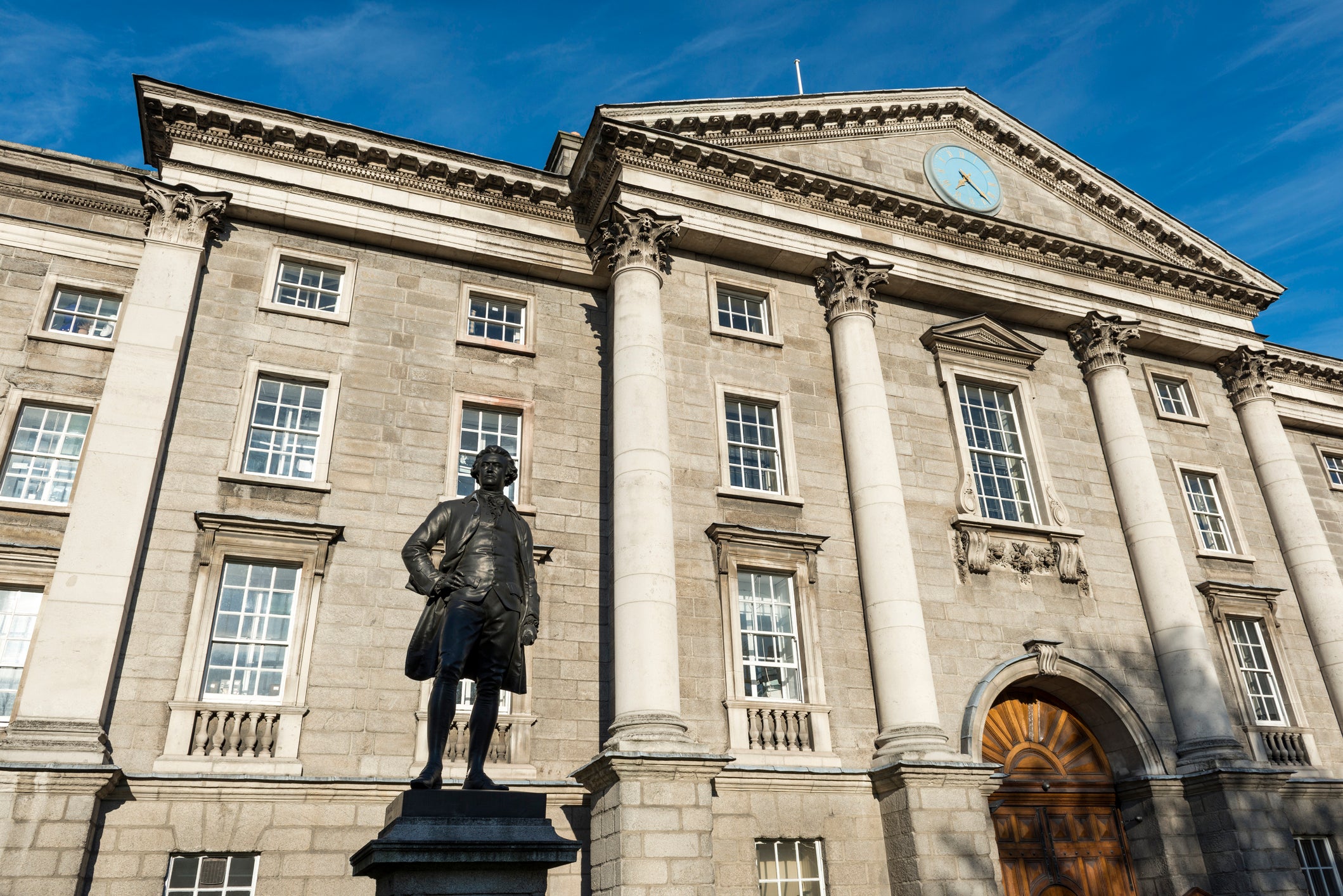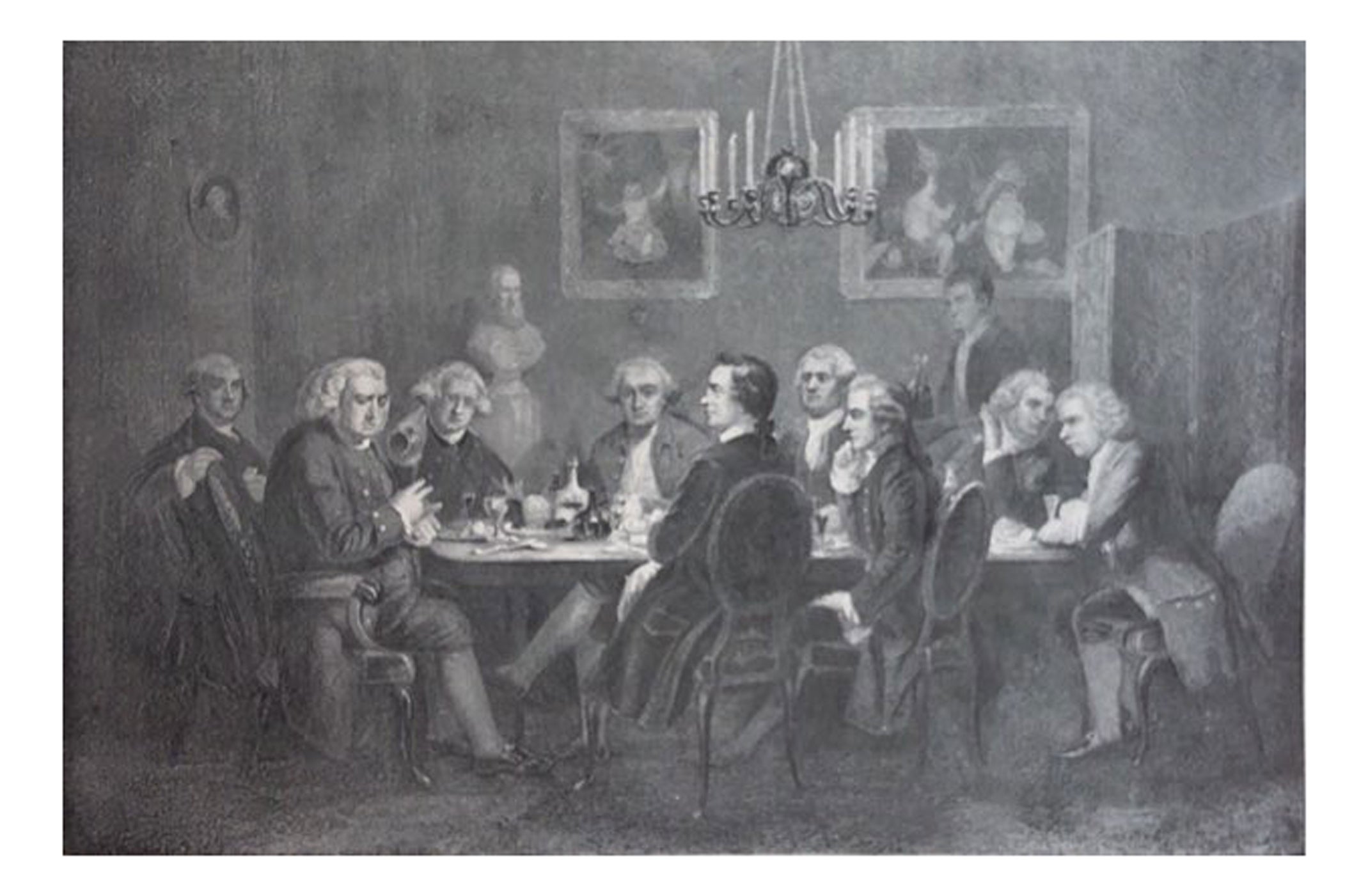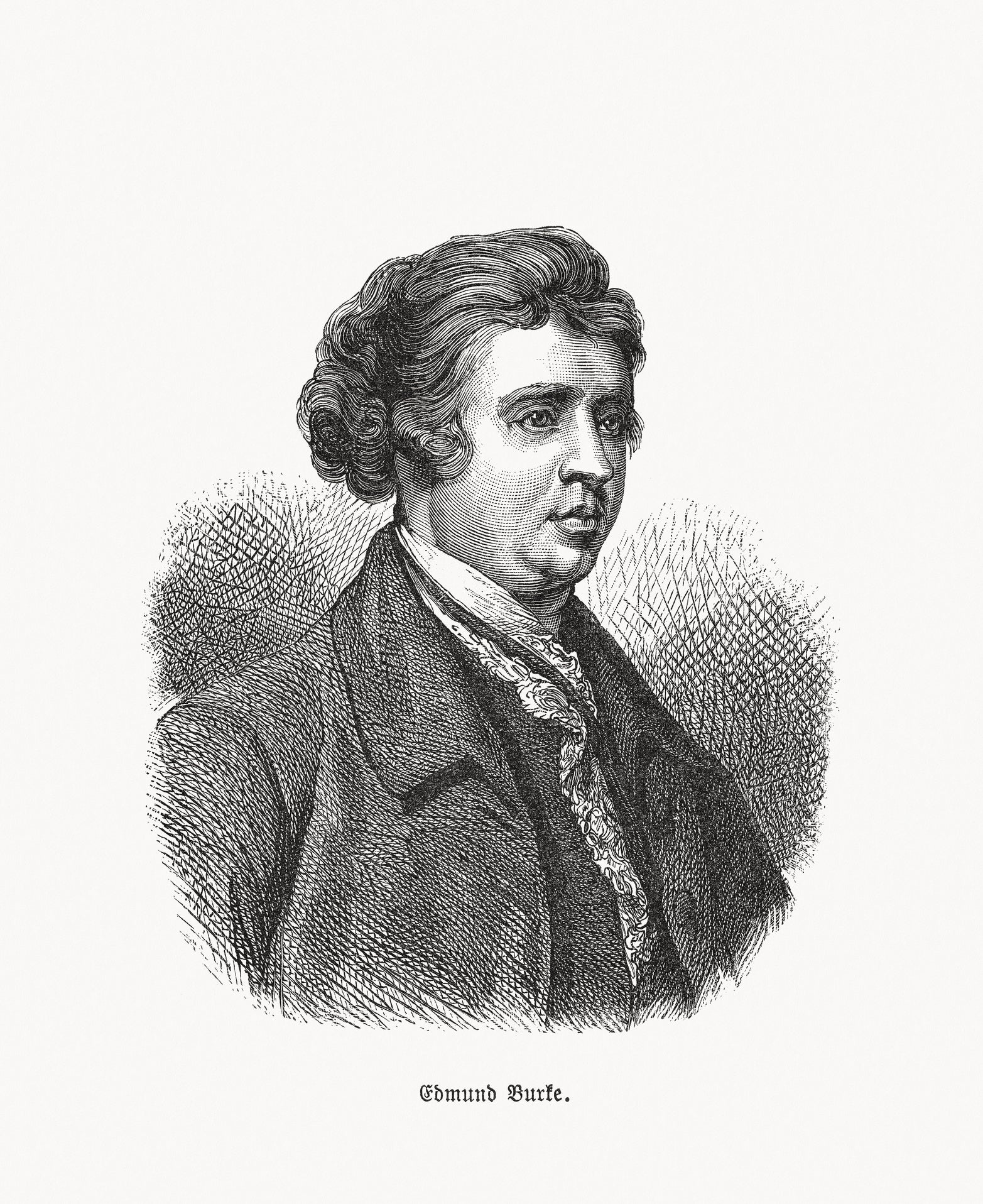Is there more to Edmund Burke than political conservatism?
There is more to Burke’s philosophy than a simple celebration of the established social order

Edmund Burke (1729–1797) is acclaimed today as one of the originators of modern political conservatism. In particular, his defence of the virtues of tradition and prejudice in Reflections on the Revolution in France is considered exemplary as a statement of conservative principles.
However, there is more to Burke’s philosophy than a simple celebration of the established social order. Not least, it is suffused with a thoroughgoing scepticism about the character and capability of human beings, which led him to reject the Enlightenment view that reason can be readily employed to the betterment of mankind. In this sense, Burke’s ideas can be seen as a counterblast against the sort of Enlightenment thinking that was sweeping through Europe towards the end of the 18th century.
Burke was born to a Protestant father and a Catholic mother in Ireland in 1729. Raised as a Protestant, he excelled at school, passing entrance examinations to Trinity College, Dublin in 1746. After graduating he moved to London, where he studied law at Temple’s Inn. However, he was more interested in the world of letters than the legal profession, and after the publication of his satirical A Vindication of Natural Society, and then a year later a philosophical study of aesthetics titled A Philosophical Enquiry into the Origin of our Ideas of the Sublime and Beautiful, he became thoroughly immersed in London literary life.
Burke’s political career took off after he was elected to the House of Commons in 1765. It was during his nearly 30 years as a parliamentarian that he produced the work that is the bedrock of his reputation. As well as the Reflections, he wrote significant treatises on the American colonies, the India question, Catholic emancipation, the English constitution, and the threat to religion from the new atheism. However, his reputation among his contemporaries rested on more than just his written work. He was also a formidable orator and statesman.
His conservatism was rooted in a deeply ingrained suspicion of any radical politics that was based on abstract principles derived solely from the operations of reason; or as he put it, on an ‘insuperable reluctance to destroy any established system of government upon a theory’. There is a basic idea here that is quite straightforward: society is complex, and human nature unpredictable; therefore, it is not prudent to mess around with political and social arrangements that have stood the test of time. The reason this became an issue during the 18th century was that Enlightenment thinkers were arguing precisely that it was possible to reform society on the basis of a priori conceptions of natural rights, such as liberty and equality.
The Unitarian dissenting minister, Richard Price, for example, whose sermon A Discourse on the Love of Our Country motivated Burke to write the Reflections, greeted the French Revolution, which ostensibly instantiated Enlightenment principles, by declaring that he could now “depart in peace, for mine eyes have seen Thy salvation”. For Price, salvation here meant “a progressive improvement in human affairs which will terminate in greater degrees of light and virtue and happiness than have yet been known” – the world, he thought, was “outgrowing its evils ... anti-Christ falling and the millennium hastening”.
Am I to congratulate an highwayman and murderer, who has broke prison, upon the recovery of his natural rights?
Burke had no truck with the unbounded optimism of this view of the situation in France. In the Reflections, he contrasted the French Revolution with the “Glorious Revolution” of 1688, where William of Orange marched on London unopposed to replace the Catholic James II. The situation in England required a revolution in order to return the government to a condition that was in line with the traditions of which it was a part. The French Revolution, in contrast, aimed simply to slough off the past.
Part of Burke’s scepticism about the proposition that a priori rational reflection might successfully be articulated to the service of radical social reform has to do with the central and necessary importance of specific social and historical circumstances. Consider, for example, the claim that liberty is a good thing. On its own, it is almost meaningless:
Circumstances (which with some gentlemen pass for nothing) give in reality to every political principle its distinguishing colour, and discriminating effect... ls it because liberty, in the abstract, may be classed amongst the blessings of mankind, that I am seriously to felicitate a madman, who has escaped from the protecting restraint and wholesome darkness of his cell, on his restoration to the enjoyment of light and liberty? Am I to congratulate an highwayman and murderer, who has broke prison, upon the recovery of his natural rights? (‘Reflections on the Revolution in France’)

Burke’s view was that it was simply too risky to allow natural rights to trump an established system of government. Moreover, the shared traditions, beliefs and habits of a nation, instantiated and passed on through extant institutions, function to secure the benefits hard won by previous generations.
By a constitutional policy, working after the pattern of nature, we receive, we hold, we transmit our government and our privileges, in the same manner in which we enjoy and transmit our property and our lives. The institutions of policy, the goods of fortune, the gifts of providence, are handed down to us, and from us, in the same course and order. Our political system is placed in a just correspondence and symmetry with the order of the world ... (‘Reflections on the Revolution in France’)
Burke’s rejection of Enlightenment talk of natural rights, though, is fuelled by more than just a pragmatic, cautionary sensibility. It is also linked to a particular conception of human nature. The Enlightenment philosophers tended to think that human beings, certainly in the absence of the corrupting effect of modern society, are systematically capable of rationality, fellow-feeling and benevolence.

Burke’s view was radically different, having much more in common with Augustine and Hobbes than with the Enlightenment philosophers. He believed that human beings are fallen, corrupt, and capable of great evil if the civilising veneer of established institutions is removed. In the absence of the constraints imposed by tradition, prejudice and habit, humans are little more than the “shriveled, meager, hopping, though loud and troublesome, insects of the hour”. Thus:
Society requires not only that the passions of individuals should be subjected, but that even in the mass and body, as well as in the individual, the inclinations of men should frequently be thwarted, their will be controlled, and their passions brought into subjection. This can only be done by a power outside of themselves. (‘Reflections on the Revolution in France’)
His political views are much less predictable than a straightforward understanding of conservatism might suggest
Of course, the trouble is that it is all too easy to forfeit the hard-won civilising effect of the state and civil society. It cannot be conjured up de novo, and then recreated time and again, simply by an appeal to abstract principles and talk of natural rights. The consequence of thinking that unfettered freedom is freedom in toto is precisely the kind of Jacobin excesses that occurred in the French Revolution. In the Reflections, this idea finds its most famous expression in the passage dealing with an attack on Marie Antoinette:
...the queen was first startled by the voice of the sentinel at her door, who cried out to her to save herself by flight – that this was the last proof of fidelity he could give – that they were upon him, and he was dead. Instantly he was cut down. A band of cruel ruffians and assassins, reeking with his blood, rushed into the chamber of the queen, and pierced with a hundred strokes of bayonets and poniards the bed, from whence the persecuted woman had but just time to fly almost naked ... (‘Reflections on the Revolution in France’)
It might be true, then, that the lives of men at the end of the 18th century were no longer “nasty, short and brutish”, but it was Burke’s view that one sure way to return them to that state was to tear down the structures of established government in the name of a reassertion of natural rights.
Not surprisingly, the reaction to the publication of Burke’s Reflections was mixed. The establishment, it hardly needs to be said, loved it. Radicals were not so keen. Its weakness is obvious: in defending the established status quo, it seems to justify the iniquities that are perpetrated in its name.

But there is something rather striking about the Reflections that is worth commenting upon: Burke largely got it right about the French Revolution. As Conor Cruise O’Brien has pointed out, many people assume that he wrote his polemic after the Jacobin terror had accounted for the deaths of countless thousands of French people. But, in fact, Burke foresaw the ‘transmigrations, fire and blood’:
...the September Massacres, the Terror, the executions of the King and Queen – those events all lay in the future. And yet there is a sense in which those events are already present in the Reflections. They are present in the sense that the ferocious dynamic which Burke ascribes to the Revolution, even in 1790, became visible to the world through those events of 1792-94. (National Review, Dec 17, 1990)
It is important to remember that Burke was not an unsophisticated thinker. As we have seen, his conservatism was motivated by a distrust of abstract principles, and a belief that it is necessary to pay attention to history and circumstance. This means that his political views are much less predictable than a straightforward understanding of conservatism might suggest. For example, the position he took on the events leading up to the American Revolution was a lot more nuanced than might be supposed. He did not think that Britain should adopt an aggressive policy towards the wayward colonists.
Edmund Burke was not a systematic philosopher (indeed some commentators go so far as to claim that he was not a philosopher at all). Rather, like his contemporary Thomas Paine, he was a political thinker who sought to influence the course of social and political events through his writing. Even if it was ultimately unsuccessful in this way, it is certainly the case that Burke’s ideas have informed the thoughts of successive generations of political theorists.
Major works
A Vindication of Natural Society (1756)
A satirical defence of the state of nature that was designed to show the absurdity of the kinds of Deist arguments that were used to criticise existing religious practices.
A Philosophical Enquiry into the Origin of our Ideas of the Sublime and the Beautiful (1757)
Burke’s only pure work of philosophy is an empiricist enquiry into our responses to the sublime and the beautiful.
Reflections on the Revolution in France (1790)
Burke’s defining work, directed specifically at the situation in France at the end of the 18th century, is a sustained criticism of the idea that it is possible to revolutionise society on the basis of abstract conceptions of natural rights.
The Works of the Right Honourable Edmund Burke (pub. Bell, 1886)
Burke’s collected works.
Join our commenting forum
Join thought-provoking conversations, follow other Independent readers and see their replies
Comments



Bookmark popover
Removed from bookmarks